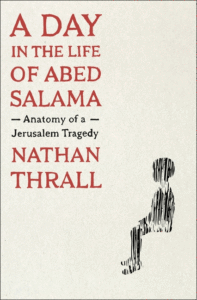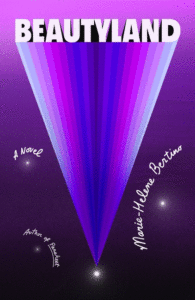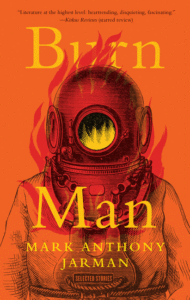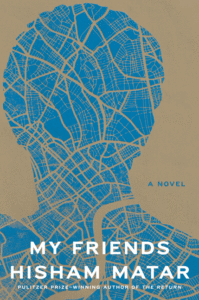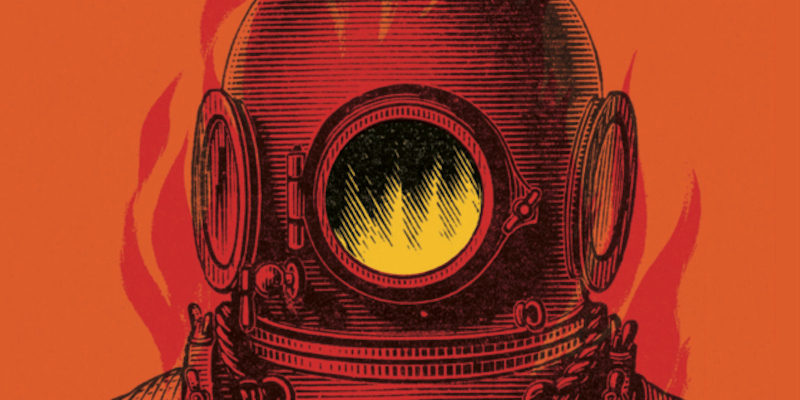
5 Book Reviews You Need to Read This Week
“A hallucinatory rummaging through the mind of a broken man.”
Our quintet of quality reviews this week includes Ahdaf Soueif on Nathan Thrall’s A Day in the Life of Abed Salama, Madison Ford on Marie-Helene Bertino’s Beautyland, Lincoln Michel on Mark Anthony Jarman’s Burn Man, James Wood on Hisham Matar’s My Friends, and Richard Robinson on Gerald Murnane’s Inland.
Brought to you by Book Marks, Lit Hub’s home for book reviews.
*
“In the book he brings the reader as close to this reality as can possibly be done with words. Through the painstaking accumulation of detail after detail he enables the reader who has never been to Palestine to experience life under Israeli occupation … The author shows, in cool, dispassionate language, how all of it, every step, was preset by the occupation; how the occupation’s rules and laws and regulations, its system of passes and permits, the land appropriations and boundary redrawings, the walls and watchtowers and flyovers, the neglect and surveillance, are all in place not to regulate life, but to squeeze the breath out of it …
The world has ignored the Palestinians to the best of its ability. The Arabs have, state by state, betrayed them. But the Palestinians have never stopped resisting. Every Palestinian in A Day in the Life of Abed Salama displays resistance in its most common form: under the rule of a ruthless occupying military power you continue to live; to live as a human being, as part of a community and a culture.”
–Ahdaf Soueif on Nathan Thrall’s A Day in the Life of Abed Salama (Times Literary Supplement)
“While this seems a proposition that promises the speculative, Bertino prefers to ground the reader in the minutia of the human experience, allowing for a deeper excavation of the strange and wonderful and heart-wrenching realities of what it means to be alive down here on Earth … Bertino accomplishes what certain acclaimed novels bewilder us with: the ability to encapsulate an entire life within a few hundred pages. Works like A Little Life and Their Eyes Were Watching God come to mind, where we can map a life from adolescence into adulthood and leave with what feels like a birds-eye view of human complication. Is this what it feels to play God? To watch a life untangle from above, to witness the profound in the mundane? But Beautyland’s greater triumph is capturing how time passes … This is where the sorcery lives, as Adina reveals the eccentricities of human nature, and we watch Adina reluctantly succumb to their emotional weight. When Bertino writes of magic, of science fiction, of the surreal, she is writing of reality.”
–Madison Ford on Marie-Helene Bertino’s Beautyland (The Brooklyn Rail)
“Many writers are content to light one or two well-placed lyrical firecrackers in a short story. Others, like Mark Anthony Jarman, set off entire fireworks displays on every page. ‘Propane slept in the tank and propane leaked while I slept, blew the camper door off and split the tin walls where they met like shy strangers kissing,’ opens the visceral ‘Burn Man on a Texas Porch,’ the first entry in Burn Man, an anthology of 21 stories culled from Jarman’s four-decade career. The rest of the story is, like many of Jarman’s tales, a hallucinatory rummaging through the mind of a broken man. After receiving skin grafts that ‘didn’t quite fit,’ the narrator fumes: ‘Hate is everything they said it would be, and it waits for you like an airbag.’ In Jarman’s stories and sentences, things seem always ready to explode …
The archetypical Jarman narrator is a bedraggled man dragging around a big aching heart. He might be a petty thief, a hockey scout, an addict or a bloodstained soldier … When I read these stories, I scribbled down two names: Barry Hannah and Denis Johnson. Then I turned to the book’s introduction, by John Metcalf, which speaks at length about the influence of both on Jarman’s prose. But let me be clear: Jarman is no mere imitator. He may have the crackling syntax of Hannah, Johnson’s gift for shocking yet poetic images, and the penchant for loners and misfits of both, but Jarman’s voice rings unique.”
–Lincoln Michel on Mark Anthony Jarman’s Burn Man: Selected Stories (The New York Times Book Review)
“As he walks, Khaled reprises the history of their intense triangular friendship, the undulations of their lives, and the shape and weight of their exile. Exile turns countries into temporalities: the place you came from and the place you find yourself in become the time before and the time after … In two novels and a memoir…Matar has found different ways of narrating the aftermath of this most decisive wound. He has written that absence is not empty but ‘a busy place, vocal and insistent.’ His work speaks eloquently of this loud absence and its unstopped complexities. One of them is obvious enough: the momentous event of Matar’s life happened first to his father and only secondarily to him. Matar’s writing is painfully alive to this asymmetry …
It’s one thing to live in the shadow of a daunting parent, a predicament many children know. It’s a different dilemma to live in the ghostly shadow of that greatness, where the challenging patriarchal achievement is always beyond reach—legendary, lost … The shape of Matar’s lifelong quest inevitably places a narrative emphasis on the shock of his own abandonment: the father leaves home. But in another, quieter motif that runs through Matar’s work, the decisive break is not when the father leaves but when the son does … It’s as if Khaled is both Telemachus and Odysseus, at once son and father, abandoned and abandoning. Khaled made the mistake of leaving home when ‘no one should ever leave their home,’ and the price he pays for this sin will be a kind of long imprisonment in England. The mysteriousness of Khaled’s inertia, his woundedness—both a literal wound and a figurative one—turns Matar’s narrative into a deep and detailed exploration not so much of abandonment as of self-abandonment. Who is this man? Khaled remains obscure in his inertia and his hesitation—damaged, adrift, cut loose. Exile has split him into different versions of himself, and he cannot quite tell the story that would make the parts cohere again.”
–James Wood on Hisham Matar’s My Friends (The New Yorker)
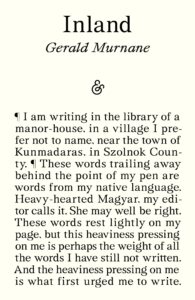
“The reissue of Australian author Gerald Murnane’s fiction is introducing new readers to this most idiosyncratic and formally adventurous of novelists, now in his 80s. Postmodernism is at a nadir, but Murnane’s nested, self-reflexive narratives may be placed alongside the fabulations of Nabokov, Calvino and Borges, once grouped under that label. Murnane is known for not straying far from Goroke in Victoria—he is the anti-type of globe-trotting literary celebrity—but like those writers, and some of the modernists before them, he is a dreamer of other worlds. His work uncompromisingly blurs the frontiers of memory and imagination; it is not for the faint-hearted. Inland, originally published in 1988, was the last novel Murnane wrote before a mysterious creative hiatus. The reader of other republished novels, such as Tamarisk Row (1974) or Border Districts (2017), now finds an important missing link. Inland is a novel that, in even more absolute terms than these books, disrupts realist conventions about setting and sense of place. Murnane is a fastidious exponent of the prose sentence, which he often treats as a report of a remembered image. From the interconnected pattern of these image-sentences we gradually infer not a place out there, but the landscapes of a solitary mind …
Inland is a love letter that looks out, looks within and looks back to ‘that other world which is in this one’ (as Paul Éluard put it). When the narrator writes ‘I saw,’ he is not limited to perceiving an object or remembering an image; nor even to remembering himself once remembering or seeing himself once seeing. In Greek, the verb to see is idein. Murnane is constantly thinking and seeing in idealities: things that exist only as creations of the imagination.”
–Richard Robinson on Gerald Murnane’s Inland (The Guardian)
Book Marks
Visit Book Marks, Lit Hub's home for book reviews, at https://bookmarks.reviews/ or on social media at @bookmarksreads.










